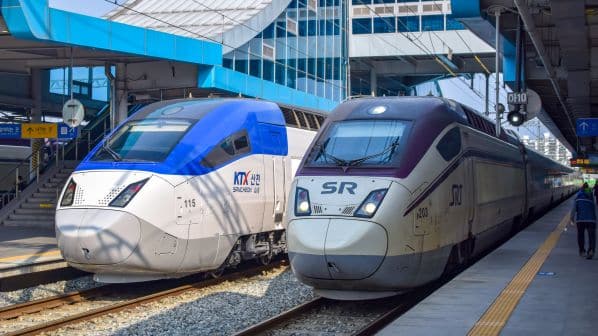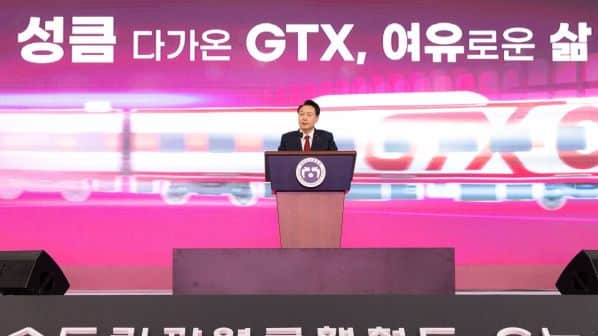KOREA’s National Assembly passed a special bill to progress construction of the Dalbit Railroad, the future Daegu - Gwangju line, on January 25.
The bill allows the project to forgo a preliminary feasibility study in order to expedite its delivery, which is proving controversial.
The government has consistently downplayed the significance of the project, which was first proposed in 1999, citing low feasibility. It has a cost:benefit ratio of 0.483, well below the threshold of 1 for a project to be considered economically viable. The government also argues that the regions that the new line will serve are experiencing a sharp decline in population, potentially resulting in operating losses.
The project was not included in the original draft of the Fourth National Railroad Network Plan. But it was added to the final document, which was published in 2021, alongside 43 other projects, following pressure by the mayors of Daegu and Gwangju for inclusion to support a joint bid by these cities to host the 2038 Winter Asian Games.
Yet with a general election looming in April, a bipartisan group of National Assembly members have come together to support the project. Originally proposed by the People Power Party (PPP) leader, Mr Yun Jae-ok, in August 2023, the Dalbit Railroad Bill was sponsored by 261 lawmakers from both the opposition PPP and ruling Democratic Party (DP). Local governments of the relevant regions worked together closely to get the bill through.
Local media suggest the two national parties have supported the project as they jockey for support from the Jeolla and Gyeongsang regions ahead of the election. By foregoing the pre-feasibility study, the project effectively avoids official assessment intended to weed out uneconomic projects promised during the election season.
“Some of the other lines have either conducted feasibility studies or are in the process, and equity must be considered,” says Mr Choi Han-kyung, fiscal management bureau director at the Finance Ministry, as quoted by Korea JoongAng Daily.
The line
The proposed line will connect Daegu and Gwangju, the country’s fourth and sixth most populous cities respectively. It will also serve Damyang, Sunchang, Namwon, Jangsu, Hamyang, Geochang, Hapcheon, and Goryeong.
There is uncertainty over what form the new line will take. While initially proposed as a 205km double-track, high-speed (250km/h) line, with an estimated cost of Won 11 trillion ($US 8.27bn), such specifications were absent from the final bill. An alternative 198.8km single-track conventional line has been suggested at the reduced cost of Won 6 trillion. A double-track conventional line is estimated to cost Won 8.7 trillion.
The project will now undergo a business case analysis by the Korea Development Institute (KDI), a government policy development and research agency, in addition to a main feasibility study, which will be followed by the planning and design phases.
For detailed data on Asian rail projects, subscribe to IRJ Pro.


